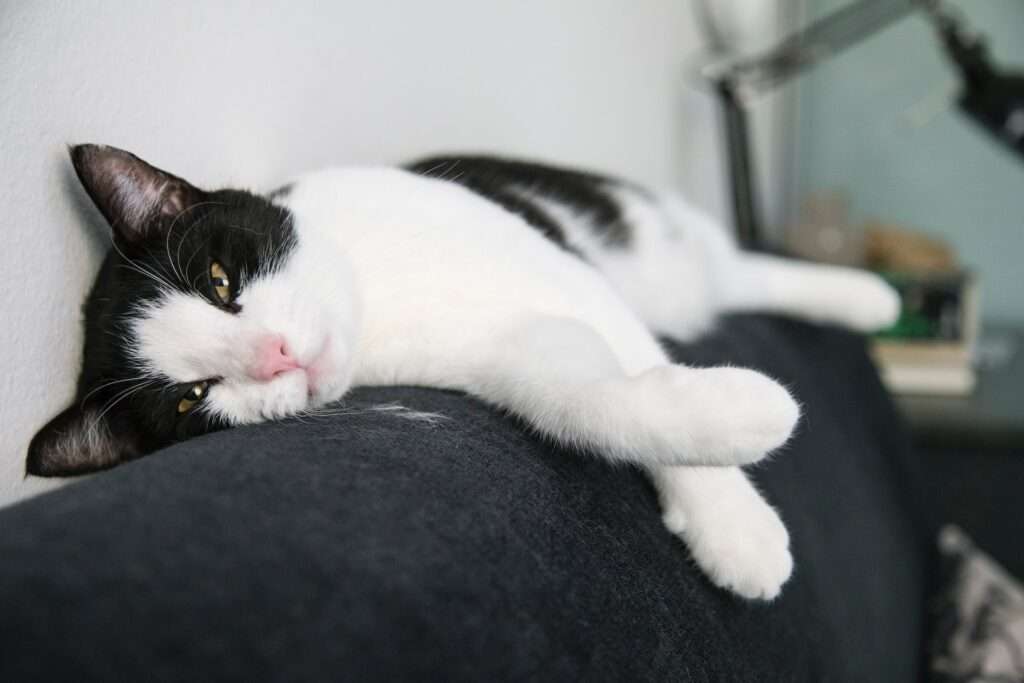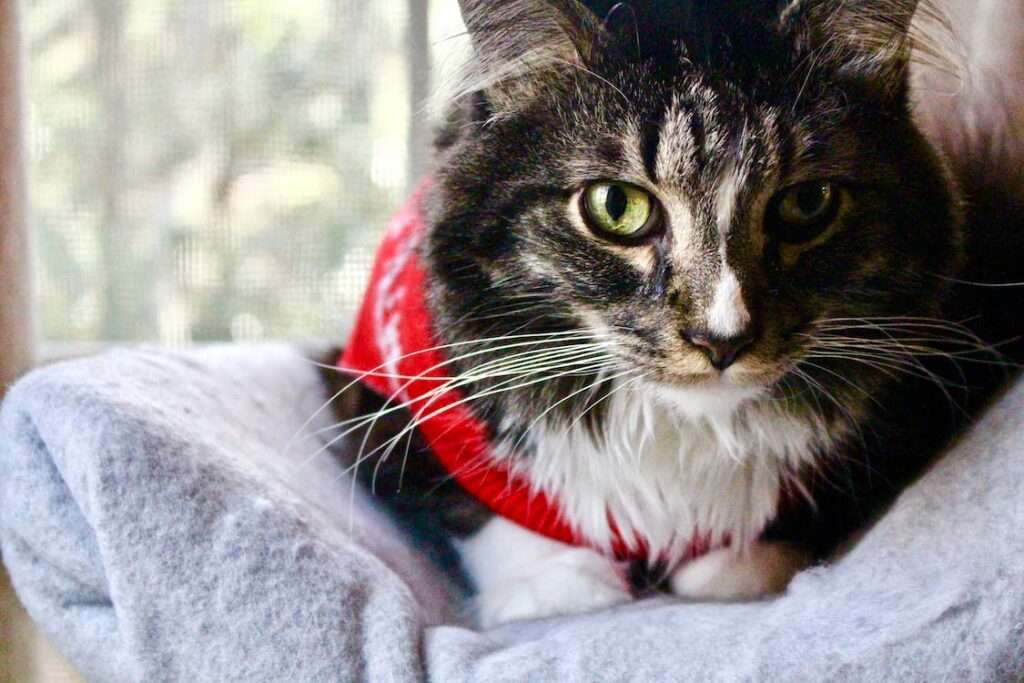How Often Do You Take a Cat to the Vet? Expert Tips and Insights
Welcome to the purrfect guide for all cat parents out there! Have you ever wondered, “How often do you take a cat to the vet?” Well, you’re in the right place! At BarkLikeMeow, we understand the importance of regular veterinary care for your beloved feline companion.
Join us as we unravel the secrets of scheduling vet visits and provide you with valuable insights to ensure your cat’s health and happiness. Get ready to become the ultimate advocate for your furry friend’s well-being. Let’s dive in together and discover how often your cat should visit the vet for a lifetime of purrs and whiskers!
When to Take Your Cat to the Vet

Recognizing the signs that your cat needs medical attention is crucial for responsible cat ownership. Just like humans, cats can experience various health issues that require professional care. Here are some common indicators that it may be time for a scheduled visit to the vet:
- Digestive problems: If your cat is vomiting or experiencing diarrhea, it could be a sign of an underlying health condition that needs attention. Persistent or severe digestive issues can lead to dehydration and nutrient deficiencies, so it’s important to address these symptoms promptly.
- Lethargy or lack of appetite: Cats are typically lively and curious creatures. If your cat suddenly becomes lethargic, lacks interest in playtime or food, it could be a sign of injury, illness, or pain. Monitoring changes in their energy levels and appetite is essential in detecting potential health problems early on.
- Changes in behavior: Cats are creatures of habit, and significant changes in behavior can indicate underlying issues. If your cat becomes more withdrawn, unusually aggressive, or displays any sudden behavioral changes, it may be due to stress, anxiety, or an underlying medical condition. Consulting with a veterinarian can help identify the cause and provide appropriate care.
- Respiratory issues: Frequent coughing, sneezing, wheezing, or difficulty breathing may be signs of an upper respiratory infection, allergies, asthma, or other respiratory conditions in cats. Prompt veterinary attention can help alleviate discomfort and prevent further complications.
- Urinary issues: If your cat is having trouble urinating or is urinating outside of the litter box, it could be indicative of a urinary tract infection, bladder stones, or other urinary issues. These conditions can be painful and potentially life-threatening, requiring immediate veterinary care.
By staying vigilant and recognizing these signs, you can ensure your cat receives timely medical attention, leading to better outcomes for their health and well-being. Remember, regular veterinary check-ups are essential to detect any underlying health problems early, even if your cat appears healthy.
Routine Vet Visits for Cats
Routine vet visits are an essential part of responsible cat ownership. Just like humans, cats need regular check-ups to maintain their overall health and well-being. While it’s common for cat owners to schedule vet visits when their feline friends are sick or injured, routine visits are equally important in preventing and detecting potential health issues before they become serious.
For adult cats, an annual visit to the vet is generally recommended. This allows the veterinarian to conduct a comprehensive physical examination and assess your cat’s overall health. During the examination, the vet will carefully examine your cat’s body, checking for any abnormalities, lumps, or changes in weight. They will also evaluate the condition of your cat’s coat, skin, eyes, ears, mouth, and teeth.
Vaccinations are another crucial aspect of routine vet visits. Vaccines help protect your cat from various infectious diseases, some of which can be life-threatening. Common vaccines for cats include those for rabies, feline distemper (panleukopenia), feline herpesvirus, and feline calicivirus. Your vet will assess your cat’s vaccination history and recommend the appropriate vaccinations based on their age, lifestyle, and risk factors.
Preventative care measures are often administered during routine vet visits. Flea and tick prevention, as well as deworming, are essential to keep your cat free from parasites that can cause discomfort and health issues. These preventive treatments can be tailored to your cat’s needs and the prevalent parasites in your area.
Attending routine vet visits can be stressful for some cats. To help alleviate their anxiety, it’s important to make the experience as comfortable as possible. Start by using a secure and comfortable carrier to transport your cat to the vet. Familiarize them with the carrier and make it a positive space by leaving it open and placing treats or toys inside. Additionally, bring along a blanket or toy that smells like home to provide a sense of familiarity during the visit.
Once at the vet’s office, stay calm and provide reassurance to your cat. Speak to them in a soothing tone and offer treats or gentle petting to help keep them calm. Some veterinary clinics may have separate waiting areas or examination rooms for cats to minimize stress from other animals. Taking these steps can help create a positive association with vet visits and make future visits less intimidating for your cat.
Senior Cats and Vet Visits

As cats enter their golden years, their health needs may change, and they may require more frequent visits to the veterinarian. Senior cats, typically considered those over the age of 7, may experience age-related health concerns that require special attention and care. Regular vet visits play a crucial role in maintaining their well-being and ensuring they enjoy a comfortable and fulfilling life.
Senior cats are more prone to certain health issues, such as diabetes, arthritis, kidney disease, and dental problems. Regular check-ups allow the veterinarian to monitor these conditions and detect any changes or early signs of illness. During a senior cat’s vet visit, the vet may conduct additional tests, including bloodwork and urinalysis, to evaluate your cat’s overall health status. These tests can help identify underlying issues and allow for timely interventions and treatment.
Dietary considerations are also important for senior cats. As cats age, their nutritional needs may change. Your vet may recommend adjustments to their diet, such as a specialized senior cat food that supports joint health or addresses specific medical conditions. Proper nutrition is crucial for maintaining optimal weight and preventing age-related issues, such as obesity or malnutrition.
Dental care is another aspect that needs attention in senior cats. Dental disease is common in older cats and can lead to pain, difficulty eating, and other health problems. Regular dental check-ups and cleanings, as recommended by your vet, can help maintain your cat’s oral health and prevent potential complications.
Mobility is often affected in senior cats due to conditions like arthritis. Your vet can provide guidance on managing arthritis pain and improving your cat’s comfort. They may recommend supplements, medications, or lifestyle modifications to help your cat move more comfortably. Creating an environment that is accessible for senior cats, such as providing ramps or steps to reach higher surfaces, can also support their mobility and overall well-being.
Special Circumstances and Vet Visits
While routine vet visits are essential, there are special circumstances that may arise, requiring additional veterinary attention for your cat. Illnesses, injuries, and surgeries are situations that may require immediate veterinary care and necessitate extra steps to ensure your cat’s well-being.
If you notice any signs of illness in your cat, such as vomiting, diarrhea, or lethargy, it’s crucial to schedule a veterinary appointment promptly. Early detection and treatment can make a significant difference in your cat’s recovery. Similarly, if your cat sustains an injury, such as a broken bone or a deep cut, seeking immediate veterinary attention is vital to address the issue and prevent further complications.
In the event that your cat requires surgery, your veterinarian will provide detailed instructions to prepare your cat for the procedure and ensure a smooth recovery. This may involve fasting your cat for a specific period before the surgery and administering medications to keep them calm and relaxed. Your veterinarian will guide you through the pre-surgery process, answer any questions you may have, and address any concerns about the procedure.
After the surgery, your cat will require extra care and attention. Your veterinarian may prescribe pain medication or antibiotics to manage discomfort and prevent infection. It’s important to follow their instructions regarding medication dosage and administration. Your cat may need to rest and limit physical activity during the recovery period to facilitate proper healing. Your veterinarian will provide specific guidelines for post-surgical care, including any necessary follow-up visits to monitor your cat’s progress.
In emergency situations, time is of the essence. If you observe signs that your cat may be experiencing a medical emergency, such as difficulty breathing, seizures or collapse, or severe bleeding or trauma, it’s crucial to act quickly. Contact your nearest emergency veterinary clinic or the on-call veterinarian right away for immediate assistance. It’s prudent to keep a list of emergency veterinary clinics in your area, including their contact information and hours of operation, readily available for such situations.
Being prepared for emergencies is essential for every pet owner. Consider keeping a pet first aid kit at home with basic supplies, such as bandages, antiseptic solutions, and a pet thermometer. Additionally, pet insurance can provide financial assistance in case of unexpected veterinary expenses, including emergency care. Research different insurance options and consider the coverage that best suits your cat’s needs.
Cost Considerations and Vet Visits

Routine check-ups, vaccinations, and preventative care are vital for keeping your cat in optimal health. However, these expenses can add up over time. That’s why it’s essential to budget for veterinary expenses and explore options that can help alleviate the financial burden.
One option to consider is pet insurance. Just like human health insurance, pet insurance can help cover unexpected veterinary costs, including emergency care, surgeries, and medical procedures. By investing in pet insurance, you can have peace of mind knowing that your cat’s healthcare needs are protected, even during unexpected situations.
If you’re concerned about the cost of veterinary care, there are other avenues to explore. Some veterinary clinics offer discounted services for low-income pet owners, making quality care more accessible. Additionally, several organizations provide financial assistance for veterinary care, helping those who may face financial constraints but still want to provide the best possible care for their feline friends.
Prevention is key when it comes to managing veterinary costs. By investing in regular check-ups, vaccinations, and dental cleanings, you can help prevent more serious health issues down the line. Catching potential problems early on can save you both money and heartache in the future.
While the cost of veterinary care is a consideration, it’s important not to compromise your cat’s well-being. By budgeting for veterinary expenses, exploring options like pet insurance and financial assistance, and prioritizing preventative care, you can ensure that your furry friend receives the care they deserve without breaking the bank.
Conclusion
In conclusion, prioritizing regular vet visits is key to providing the best care for your beloved cat. By staying attuned to your cat’s needs and observing any signs of illness or injury, you can address potential health issues proactively.
During vet visits, remember that your cat’s comfort and well-being are paramount. Create a positive experience by using a comfortable carrier, bringing along familiar toys or blankets, and helping your cat feel at ease in the vet’s office.
Take this opportunity to ask your veterinarian any questions or express any concerns you may have about your cat’s health, behavior, or overall care. Your veterinarian is there to guide you and provide expert advice. By following these simple guidelines and being proactive in your cat’s healthcare, you can contribute to their long-term health and happiness.
Regular vet visits allow for preventive care, early detection of potential issues, and personalized guidance tailored to your cat’s specific needs. Remember, your cat’s well-being is a partnership between you and your veterinarian, and together you can ensure a lifetime of health and joy for your feline companion.
Frequently Asked Questions
Q: How often should I take my cat to the vet?
A: It is generally recommended to take your cat to the vet at least once a year for a routine check-up. However, the frequency of vet visits may vary depending on the age, health condition, and specific needs of your cat. Kittens, senior cats, and those with chronic illnesses may require more frequent visits. It’s best to consult with your veterinarian to determine the appropriate schedule for your cat.
Q: What vaccinations does my cat need?
A: Vaccinations are crucial to protect your cat from various infectious diseases. Common vaccinations for cats include rabies, feline distemper (panleukopenia), feline herpesvirus, and feline calicivirus. Additionally, if your cat hides outside or is at risk of exposure, vaccinations against feline leukemia and bordetella may also be recommended. Consult your vet to develop a vaccination plan based on your cat’s lifestyle and risk factors.
Q: How often should I deworm my cat?
A: Deworming schedules can vary depending on factors such as your cat’s age, lifestyle, and risk of exposure. In general, kittens may require more frequent deworming, starting from around two weeks of age and continuing every two to three weeks until they are three months old. Adult cats should be dewormed at least once every three to six months, or as recommended by your veterinarian. Regular fecal examinations can help determine if deworming is necessary.
Q: What should I expect during a routine vet visit?
A: During a routine vet visit, the veterinarian will perform a thorough physical examination of your cat, including checking their weight, temperature, heart rate, and overall health. They may also ask you questions about your cat’s behavior, diet, and any concerns you may have. The vet may administer necessary vaccinations, conduct parasite screenings, and recommend preventive treatments. This is also an opportunity for you to discuss any questions or concerns you have about your cat’s well-being.
Q: What are some signs that my cat needs to see a vet urgently?
A: Certain signs may indicate an urgent need for veterinary attention. These include sudden changes in behavior, appetite, or litter box habits, difficulty breathing, excessive vomiting or diarrhea, bleeding, limping, severe lethargy, or any signs of pain or distress. If you notice any of these symptoms, it’s important to seek veterinary care immediately as they may indicate a serious underlying condition.
Please note that while this FAQ provides general information, it’s always best to consult with a qualified veterinarian for personalized advice regarding your cat’s health and specific needs.



